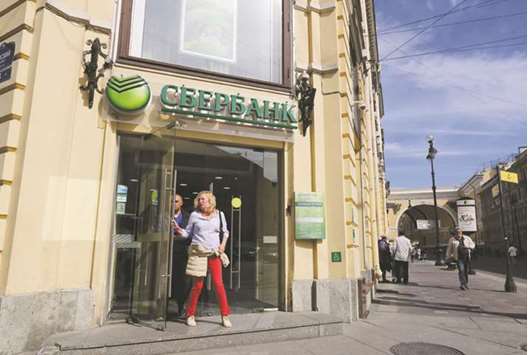Russia’s largest lender Sberbank is considering setting up an Islamic finance entity and will propose regulatory changes to facilitate Shariah-compliant business, a senior bank official told Reuters.
Russian banks want to develop Islamic finance to attract investors from the Gulf and Southeast Asia, underscoring efforts to widen funding sources strained by an economic crisis and Western-imposed sanctions. Vnesheconombank and Tatfondbank are also developing Islamic finance products.
Lobbying by Sberbank, majority owned by the central bank and holding around a third of domestic bank deposits, could be key to the development of Islamic finance in Russia where retail demand has so far been untested. Only about 20mn of its 145mn people are Muslims.
Until now, Sberbank has explored Islamic finance within existing regulations but it plans to present draft regulatory changes to authorities by the end of the year, Oleg Ganeev, deputy chairman of the executive board, said via e-mail last week. “We see there is willingness of the regulator to cooperate with banks and financial institutions in this project.”
Legislation will need to be passed in Russia to make Islamic finance cost-effective. Taxation is often an obstacle for Islamic finance transactions, which can attract double or triple tax duties since they require multiple transfers of underlying assets.
Sberbank is currently testing pilot transactions in leasing, financing food production and trading, after closing a maiden Islamic finance deal last year, Ganeev said, adding that a decision on whether to set up a separate entity could come by next year.
“There are 3 landmark projects in the pipeline. One is a local project in the energy-saving sector and two projects are with trading counterparts from GCC (Gulf Cooperation Council).”
Its first Shariah-compliant deal was structured for a leasing company in the largely Muslim Tatarstan region, with a financing limit of 45mn roubles ($775,000).

Customers exit a Sberbank bank branch in central St Petersburg (file). Russian banks want to develop Islamic finance to attract investors from the Gulf and Southeast Asia, underscoring efforts to widen funding sources strained by an economic crisis and Western-imposed sanctions.
